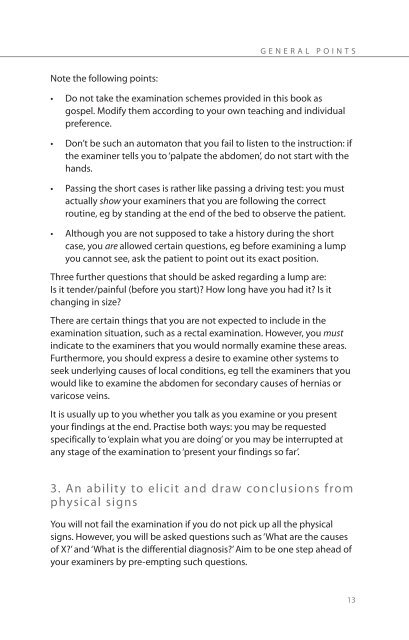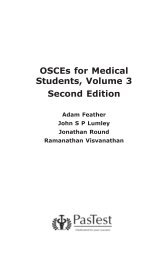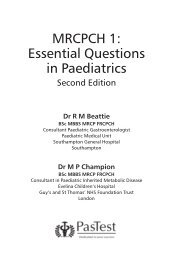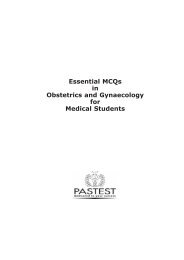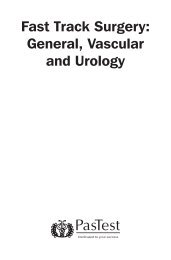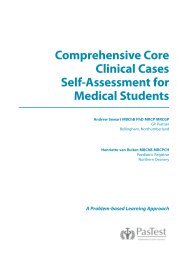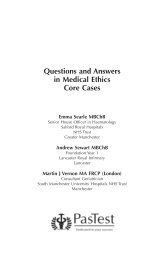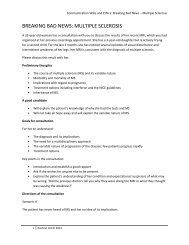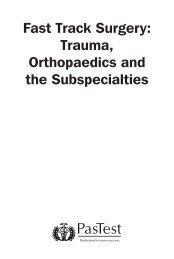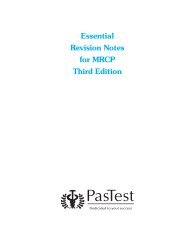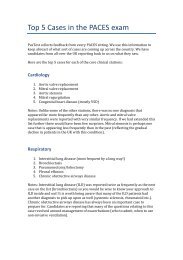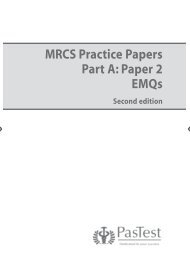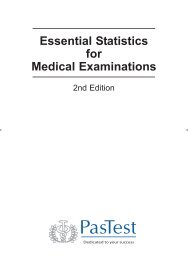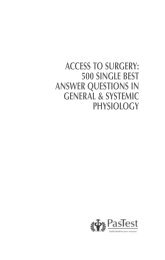SURGICAL FINALS Passing the Clinical - PasTest
SURGICAL FINALS Passing the Clinical - PasTest
SURGICAL FINALS Passing the Clinical - PasTest
- No tags were found...
Create successful ePaper yourself
Turn your PDF publications into a flip-book with our unique Google optimized e-Paper software.
G E N E R A L P O I N T SNote <strong>the</strong> following points:gospel. Modify <strong>the</strong>m according to your own teaching and individualpreference.<strong>the</strong> examiner tells you to ‘palpate <strong>the</strong> abdomen’, do not start with <strong>the</strong>hands.actually show your examiners that you are following <strong>the</strong> correctroutine, eg by standing at <strong>the</strong> end of <strong>the</strong> bed to observe <strong>the</strong> patient.case, you are allowed certain questions, eg before examining a lumpyou cannot see, ask <strong>the</strong> patient to point out its exact position.Three fur<strong>the</strong>r questions that should be asked regarding a lump are:Is it tender/painful (before you start)? How long have you had it? Is itchanging in size?There are certain things that you are not expected to include in <strong>the</strong>examination situation, such as a rectal examination. However, you mustindicate to <strong>the</strong> examiners that you would normally examine <strong>the</strong>se areas.Fur<strong>the</strong>rmore, you should express a desire to examine o<strong>the</strong>r systems toseek underlying causes of local conditions, eg tell <strong>the</strong> examiners that youwould like to examine <strong>the</strong> abdomen for secondary causes of hernias orvaricose veins.It is usually up to you whe<strong>the</strong>r you talk as you examine or you presentyour findings at <strong>the</strong> end. Practise both ways: you may be requestedspecifically to ‘explain what you are doing’ or you may be interrupted atany stage of <strong>the</strong> examination to ‘present your findings so far’.3. An abilit y to elicit and draw conclusions fromphysical signsYou will not fail <strong>the</strong> examination if you do not pick up all <strong>the</strong> physicalsigns. However, you will be asked questions such as ‘What are <strong>the</strong> causesof X?’ and ‘What is <strong>the</strong> differential diagnosis?’ Aim to be one step ahead ofyour examiners by pre-empting such questions.13


